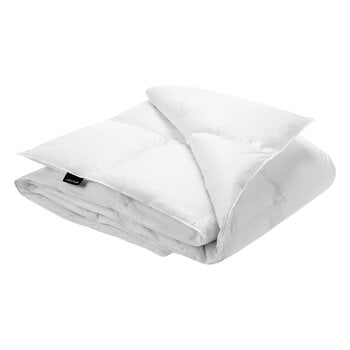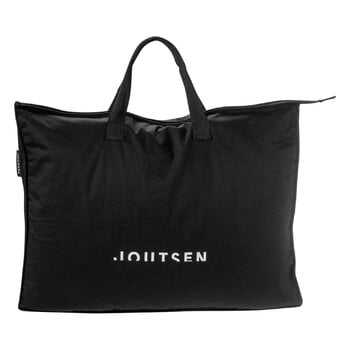The Jalo down double-sized comforter by the Finnish brand Joutsen is the perfect choice for anyone who enjoys natural materials and an extra luxurious feel. The 100% down filling is both warm and breathable, allowing the temperature under the duvet to stay comfortable all night. The fabric used in the duvet is a fine cotton batiste with a high thread count. The warm Jalo double duvet is best suited for those who prefer to sleep in a cool temperature or just enjoy extra warmth.
The down used in the Joutsen products is meticulously cleaned, dust-free and non-allergenic, and the products have been granted the Allergy Label by the Finnish Allergy, Skin and Asthma Federation. The Joutsen bedding is manufactured in Finland.




















